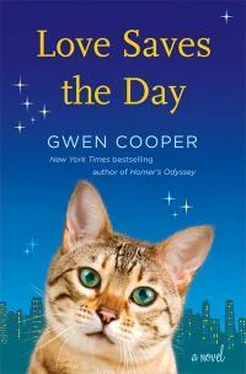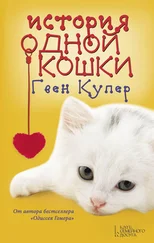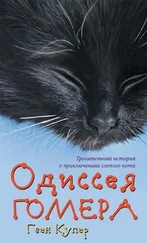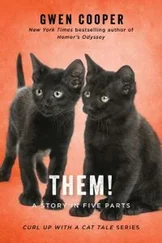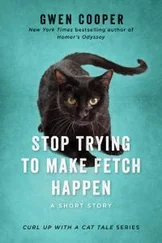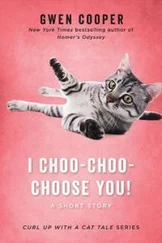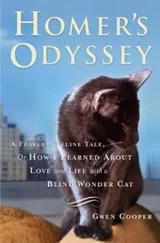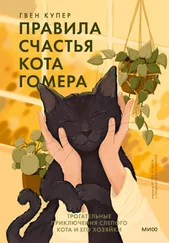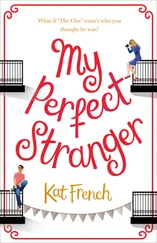“It wasn’t the right time,” Laura said. “I’d just taken off three weeks.” In fact, it was Perry, claiming that the directive came straight from Clay (who sometimes tried to mitigate his own capriciousness with equally random acts of generosity), who’d insisted that she take a full three weeks for her honeymoon. “And, anyway”—she paused to smile in a way she hoped would be convincing—“I’m fine. I really am.”
It had been a Tuesday in March, the first legitimately gorgeous spring day of the year—and an illusion of sorts, because the following week would be as cold and rainy as the depths of February—when Laura had gotten the call from her mother’s office. Even though Sarah had worked as a typist for the small real estate law firm in the East Thirties for over fifteen years, Laura had never met any of her mother’s co-workers. So when she’d heard a voice other than Sarah’s on the other end of the line, she’d known instantly that something was wrong, known it even before the woman’s hesitant voice had said, “Is this Laura? I worked, work I mean, with your mother …” She’d known before the woman went on to say things like heart attack and didn’t suffer .
Laura must have told a co-worker, must have told somebody what happened and where she was going, although afterward she could never remember. The next thing she knew, she was squinting in too-bright sunshine. I should have worn sunglasses today , she thought, and then wondered if she ought to be thinking about sunglasses now. Women in unbuttoned winter coats and men in suits with their ties loosened, people whose mothers hadn’t just died, walked at a more leisurely pace than they had in the brisker weather of the day before. They strolled past small cafés where people whose mothers hadn’t just died sat outside for the first time in months, and past the Mister Softee trucks that always seemed to spring up like fresh grass the instant the thermometer climbed above sixty-five. Laura had a sudden flash of memory, of Sarah bringing armfuls of fresh fruit on breathless summer nights to the hookers who walked Second Avenue, Laura hiding behind Sarah’s legs as the hookers thanked her and bent down to tell Laura, Ainchou a pretty girl .
By now Laura was aware that her scattered thoughts were a way of distracting herself, of avoiding the knowledge of her new reality ( I have no parents ) even as she hailed a cab and directed it to the morgue at 32nd and First, deep beneath the ground mere blocks from the desk where Sarah had died, high in a glass tower not unlike the building Laura had just left.
It was on a day much like this—when Laura had been, what, six? seven?—that Sarah had picked her up outside of her elementary school one Friday afternoon and announced, with a kind of happy mystery, “I got Noel to cover the store. We’re going someplace else today.” And Laura, still wearing her red backpack with the Menudo pin she’d begged Sarah for at the Menuditis store, had clasped Sarah’s hand and followed her to Eldridge Street and Adam Purple’s Garden of Eden.
There were dozens of community gardens on the Lower East Side in those days, but the Garden of Eden was far and away the grandest of them all. Adam Purple, a squatter and neighborhood eccentric, had spent a decade reclaiming what had been five lots of burned-out tenement buildings with plant clippings and compost he made himself by filling wheelbarrows and grocery carts with manure he collected from the horse-drawn carriages of Central Park. The result was a fifteen-thousand-square-foot formal garden bursting with roses, pear trees, climbing ivy, flowering bushes, and hundreds of other plants Laura couldn’t begin to name. At its precise center was an enormous foliage yin–yang circle.
Laura, with the limited perspective of childhood, had thought she’d known everything there was to know about New York City, especially her small corner of it. Then, seemingly out of nowhere, there was this ! She felt staggered by the realization of how much beauty, unsuspected by her, had lived hidden within the bleak, shabby cityscapes she saw daily.
The afternoon sun had played mischievous tricks in Sarah’s hair that day, crowning her in a red-gold blaze. To Laura’s dazzled eyes, her mother had never seemed more beautiful. She looked like a fairy queen from one of Laura’s much-loved picture books. What magic was this that her mother had conjured? One moment they’d been walking down a glass-and-rubble-strewn urban street, picking their way carefully over crack vials and crumpled soda cans, and then suddenly they were overwhelmed by the spicy-sweet scent of roses and crocuses. Feral cats lazily opened and closed their eyes in the sun-dappled shadows beneath fruit trees, too serene to bother with the birds chattering in branches overhead. Laura thought of The Secret Garden , a book she had just begun to struggle through. Surely, she told herself, this very spot must be the most enchanted place in the entire world.
“Most people, people who live in other places, only think about dirt and noise when they think about New York and where we live,” Sarah had said as the two of them strolled, still hand in hand, through the alternating coolness and warmth of the garden. “They don’t know it like you and I do. They don’t know that we live in the most wonderful place in the world.” In an echo of Laura’s earlier thoughts, Sarah had winked and added in a stage whisper, “It’s our secret.”
They were standing beneath a cherry tree that had not yet begun to blossom, and Laura stopped Sarah to pull a sheet of paper from her backpack. Her teacher had made everyone in the class write a poem about springtime that day, and Laura was suddenly moved to read hers aloud to her mother. Blushing, because Laura hadn’t been a child who “performed” for adults, she read:
Winter is over
Gone is the snow
Everything’s bright
And all aglow
Birds are singing
With greatest cheer
Expressing their joy
That spring is here
Animals awaken
From their long winter sleep
Spring is like a treasure
We all wish to keep
Sarah had been charmed. “That is the most beautiful poem I’ve ever heard,” she’d said. “Did you know that some of the best poems are songs?” And Laura, who hadn’t known that but did know that her mother knew everything about music and songs, had nodded with what she hoped passed for the solemn wisdom of somebody much older, perhaps ten or eleven. “I think your poem is a song,” Sarah had told her. Then she and Laura had practically run all the way back to Sarah’s record store, where Sarah had selected a few albums from her enormous personal collection and made a phone call to a friend. Then they’d walked over to Avenue A and entered what looked like a perfectly ordinary twenty-story apartment building.
But it turned out there was a recording studio in the basement. Funny-looking block letters etched into the glass-door entrance proclaimed it Alphaville Studios, and Sarah said it was a famous place. A man Laura had never seen before, with a scraggly long beard and deep dimples, appeared from some hidden back office and greeted Sarah with a hug and a warm rubbing of cheeks. “It’s been a long time since we’ve seen the likes of you around here, girl.” He sneaked them into an unoccupied recording studio where Sarah put her records on a kind of machine that let her filter out the vocals until all they could hear was the music. Laura had been deeply impressed with Sarah’s knowledge of this complicated-looking equipment. Clearly, she’d spent a lot of time here once. With this realization came the insight, always shocking for a small child, that Sarah must have had an entire life all her own before Laura was born.
Читать дальше
